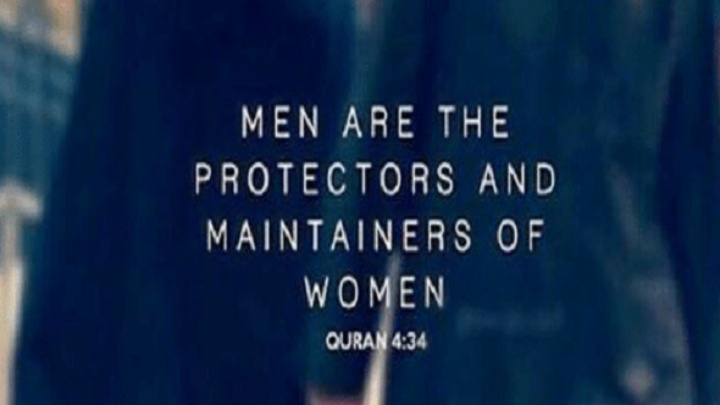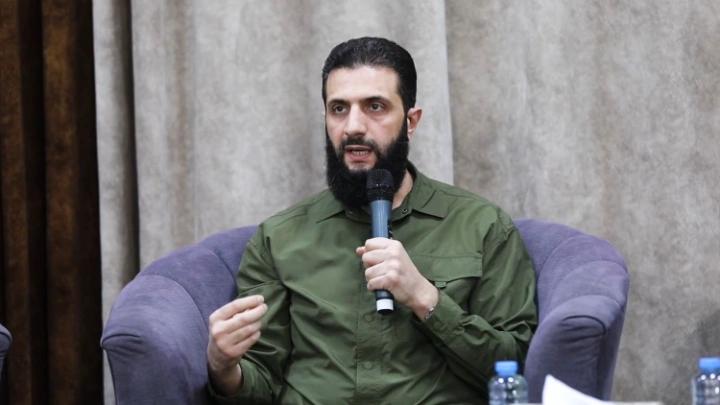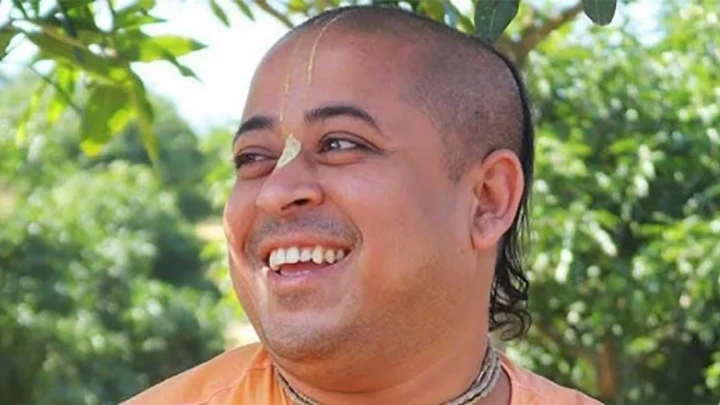Rights Of Husband And Wife In Islam
Shining BD Desk || Shining BD
Islam depicts marriage to be the foundation of society and family life. All Muslims are encouraged to marry. Islam teaches every aspect of life, in a concise manner, including the chapter of marriage in an individual’s life. In order to live a life of peace and tranquility, both partners in the relationship are required to fulfil each other’s rights. In an atmosphere of harmony, these rights and duties initiate a framework to balance the household and family life. Islam secures the rights of man and woman equally. It does not degrade either of them. They have both been given their due rights. This essay aims to illustrate, that both partners in a relationship have equal rights and responsibilities to establish a stable society. This will be illustrated through analyzing three different prophetic narrations concerning spousal rights.
The relationship between a husband and wife is not like any other ordinary relationship, rather it is more extreme. It is a unit of love. The Qur’an expresses this in the following verse, “And of His signs is that He has created for you, from yourselves, spouses that you may gain peace through them and He has set among you love and compassion. Surely in this there are signs for thoughtful people.” (Quran 30:21) To gain that love and compassion, Islam has ordained specific rights upon the husband and wife. The prophet said’ “marriage is half of faith.” It is a source of protection against temptations. One interesting prophetic narration in respect to the rights of a husband upon his wife is as follows; “When a husband calls his wife at night to have relations with her and she refuses without a valid shari reason she is cursed throughout the night by the angels.” The sanad of this hadith complies with all the conditions required for it to be considered as a sahih hadith. All the narrators involved have been classified as upright and reliable. Therefore, this prophetic narration falls under the category of sahih. It has also been narrated in sahih Bukhari as well as sahih Muslim which strengthens its authenticity. Regarding the matn of this hadith there are no defects and it has been accepted as sahih according to the Islamic teachings and hadith scholars such as Imam Ahmad, Al-Hakim, Ibn as-Salah and others.
The final narrator of the sanad of this afore mentioned hadith is Abu Hurairah. His actual name was Abd al-Rahman Ibn Sakhr Ad Dausi, however, he is famously known as Abu Hurairah. The people of Sunnah consider him to be the most prolific narrator of hadith. Abu Hurairah has been credited with narrating approximately 5374 prophetic narrations. After the demise of the blessed prophet, Abu Hurairah invested majority of his life in teaching the holy prophetic narrations in Medina. He was known to be an authentic narrator and a renowned companion of the prophet (PBUH).
The matn of this hadith, signifies the rights of a husband upon his wife. It symbolizes that the desires of a man should not be neglected by his wife, regardless of the circumstances. Ibn Hazm has stated regarding this narration, “It is obligatory on slave women and free women alike not to refuse their masters or husbands if they call them, so long as the woman who is called is not menstruating or sick in such a way that intercourse will be harmful to her, or observing an obligatory fast. If she refuses with no excuse, then she is cursed.” This curse which has been recorded for a woman, (in the case of her refusal) is entitled to her if her husband remains displeased with her throughout the night. However, if he forgoes his own right and forgives her then she is pardoned against this curse by the mercy of God. In the case, of a man insisting to call her to have relations at night whilst she has a genuine shari excuse, he will be sinning instead of his wife. “There is no obedience to any creation if it coincides with the disobedience of the Almighty Creator.”
Islam emphasizes upon two main aspects in life. Firstly, the rights of Our Creator. Secondly, the rights of His creation. Mankind has been expected to fulfil the rights of everyone. Precisely the rights of a husband and wife have been prioritized over all others. To gain the ability of understanding and fulfilling the rights ordained upon a husband and wife it is necessary to know the importance of marriage and its status in Islam. Indeed, marriage is a means of attaining piety and it is a source of protecting one’s chastity. Allah says, “they are a garment for you, and you are a garment for them.” This verse denotes that a man is a covering for his wife. Simultaneously, she is a covering for her husband. They shield one another. They shroud each other’s weaknesses and shortcomings. Therefore, marriage allows one to enter a citadel of safety which in return protects against immorality. To attain these benefits of marriage, Islam has enlightened its followers through Quranic verses and prophetic narrations, which teach the men and women equally, etiquettes of marriage. It has been narrated in Sunan Ibn Majah by Abu Umamah that the prophet (PBUH) used to say: “Nothing is of more benefit to the believer after Taqwa of Allah than a righteous wife whom, if he commands her she obeys him, if he looks at her he is pleased, if he swears an oath concerning her she fulfils it, and when he is away from her she is sincere towards him with regard to herself and his wealth.” This prophetic narration has not been classified as sahih neither hasan. Rather, it falls under the classification of da’if. The reason this narration is daif is because all the prerequisites required for the complete authenticity of a hadith are not found. Amongst the many narrations included in Sunan Ibn Majah, there are 613 narrations which are known to be da’if. Ibn Majah did not focus on collecting authentic hadith, instead he invested in collecting as many narrations as he could regarding juristic law, regardless of their authenticity or chain of narrators. Despite that Ibn Majah collected 1339 authentic hadith which have not been found in both the sahihain i.e. sahih Bukhari and sahih Muslim. Considering that the previously mentioned narration is da’if does not necessitate the invalidity of it. Alternately, it is valid and according to many hadith scholars a da’if hadith may be accepted.
Additionally, the ultimate narrator in the sanad of this hadith which has been mentioned in Sunan Ibn Majah is Abu Umamah. He was commonly known by Abu Umamah; however, his actual name was Suday Ibn Ajlan ibn Wahb. He was a well-known companion of the prophet (PBUH), nonetheless not much mention has been made of him. Imam Bukhari and Imam Muslim have included some 250 hadiths by Abu Umamah. His high ranking as a companion earned him the title of trustworthy. He was a profound narrator of hadith. During the battle of siffin Abu Umamah was in the company of Ali (R). He later migrated to Syria. He was the last and final companion of the prophet (PBUH) to die in Syria.
Amongst the many lessons and advices that the prophet (PBUH) left for his nation, one of the most comprehensive life lessons for a woman is the one mentioned above. Life will become blissful for each household that holds unto the practices and teachings of the blessed messenger of God. The holy prophet (PBUH) has emphasized multiple times upon the importance of obedience to the husband. “If I was to command anyone to prostrate to anyone besides Allah, I would command a wife to prostrate to her husband.” The matn of the hadith narrated by Abu Umamah focuses on the rights of a husband upon his wife. A man is encouraged to choose a wife according to four aspects; beauty, wealth, lineage and religion. A wife that aids him in gaining nearness to God and is submissive to her husband. The righteous wife is the one who brings joy into the life of a man, provided she lives up to his expectations and possesses the quality of obedience. This is supported by a Quranic verse mentioned in surah Nisaa. “Therefore, the righteous women are devoutly obedient, and guard in (the husbands) absence what Allah would have them guard” [an-Nisaa’ 4:34]. Well explained in the narration is the expectation from an ideal wife. She must obey her husband under all circumstances, provided that his command is not contrary to the command of God. The matn further explains that the husband should feel a sense of pleasure and happiness when he sees her. This phrase denotes that she beautifies herself for him and she possesses qualities which please her husband according to his nature. After a person has earned the fear of Allah and righteousness, he cannot find a better bounty or favor from God than that mentioned above, i.e. an ideal wife. “The Muslim should choose a wife who gives him comfort when he sees her, and he feels joy in his heart when she is present, so she fills his house and his life with ease, joy and happiness.” This is not only what is expected from her. Rather the hadith follows on to explaining that she fulfils every oath which is taken by her husband regarding her. She must also be sincere towards him, not only during his presence but in his absence too. If he entrusts her to his wealth, property, belongings etc that trust must not be violated. It is the right of every husband to have a trustworthy wife. She is entitled to live with the quality of sincerity, man is also required to live with the quality of sincerity towards her. These are the minor aspects which form every household. They bring understanding and respect for one another which in return positively influences the children also.
The third hadith to be analyzed in this essay is reported in sahih Bukhari by an eminent companion of the prophet (PBUH), namely Sa’d bin Abi Waqas; Allah’s Messenger (ﷺ) said, ‘You will be rewarded for whatever you spend for Allah’s sake even if it were a morsel which you put in your wife’s mouth.’ This hadith is in complete accordance to all the conditions required for it to be acknowledged as a sound and authentic narration. All the narrators included in the chain of transmission are known to be trustworthy and intelligent. They also possess a sharp memory which authenticates their narrations. Due to this hadith being found in sahih Bukhari also strengthens its soundness, as mentioned previously that no hadith in sahih Bukhari falls under the category of da’if. Imam Bukhari has only included sahih hadith in his respected compilation.
The sanad of the preceding hadith mentioned ends with the companion Sa’d bin Abi Waqas. He is known to be one of the very first companions of the prophet (PBUH) to accept Islam. After acceptance of Islam, Sa’d bin Abi Waqas perfected it so much that he was one of the ten companions whom the prophet had given glad tidings of paradise to in this world. The love which Sa’d carried in his heart for Islam caused him to gain a rank which not many had achieved. He had been reported to have said to his mother, “Yaa Ummaah! In spite of my strong love for you, my love for Allah and His Messenger is indeed stronger. By Allah, if you had a thousand souls and each one departs one after another, I would not abandon this religion for anything.”
Furthermore, this hadith illustrates the enormous rewards which Allah has kept for giving charity for His sake, to the extent that whatever a husband feeds his wife he is rewarded for that. The prophet (PBUH) explains that every action done with sincerity is loved by the Almighty. Charity for the pleasure of Allah is highly ranked. Explicitly charity to the wife. Not necessarily through means of giving her money, clothing etc. Rather, a single morsel of food that she is given with love, care and sincerity of intention by the husband is a rewarding act. A man is encouraged to be loving, playful and enjoyable with his wife, not serious and strict. “A man should be like a child (playful) with his wife, but if she needs him, he should act like a man.” Islam emphasizes upon the rights of a wife and a husband. Several prophetic narrations teach the way of living and creating an atmosphere of harmony within the home. Loving actions performed by the husband towards the wife will naturally build confidence within her and enable her to explore her own qualities, hence she will be grateful towards him. Our beloved prophet (PBUH) was the most loving husband. He showed affection towards his wives. He reassured them about his love for them through his noble actions. For instance, when Aisha ® used to drink water from a glass, he (PBUH) would drink after her from the same glass and the same place that she drank from. These actions teach a husband how to treat his wife. Every virtuous deed is charity. The best charity is that which is for the family. “When you give begin with the members of your family.”
In conclusion, this essay illustrates the importance of the rights of a husband upon his wife and the importance of the rights of a wife upon her husband in Islam, through the analysis of three noble prophetic narrations. The chain of transmission and the body of each hadith has been analyzed. It established that the wife is required to live in full submission towards her husband if he does not command her to disobey Allah and he does not oppress her. She is obliged and expected to be loyal and trustworthy towards him. His trust should not be violated under any circumstances. In return to her obedience, the husband is expected to keep her happy. He is the leader of the house; he should win her heart through his thoughtful actions and caring nature. Consequently, by fulfilling the rights of one another the environment of the house is brightened causing a strong bond between the couple. This strong relationship will also impact the children of the household. Islam teaches every minute detail of every facet in life. It specifically emphasizes upon rights and responsibilities of husband and wife. If these advices are practiced correctly this will create a harmonious society filled with positive vibes and it will help create stronger generations with confidence.
Shining BD
























